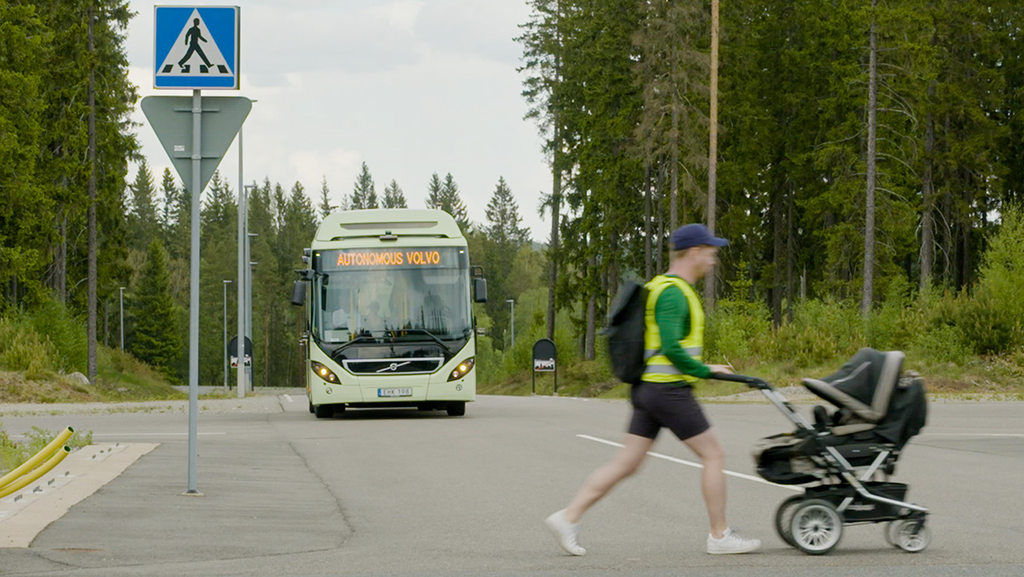Passengers positive about autonomous buses - unique study shows
In a unique study, passengers' experiences and thoughts about autonomous buses have been examined and the results show that many are positive about the new technology. The study is the first to be done with a full-length bus and is in part funded through ElectryCity.

Volvo Buses is at the forefront of the development of self-driving buses. Parts of the development have been financed by Vinnova and Vehicle Strategic Research and Innovation (FFI), through ElectriCity. For the new technology to be successful and have a chance to improve transport, passengers must be positive; which Volvo Buses, Västtrafik and Chalmers have now investigated in 2021.
“In order for us to be able to take advantage of the benefits of autonomous buses in the future, passenger acceptance is absolutely crucial. We need to know what they think about the experience, if they feel safe and if self-driving buses are something they could consider using. As far as we know, no similar research has been done with full-length buses, which makes this study extra exciting,” says Joakim Jonsson, Project Manager Autonomous Research Projects at Volvo Buses.
The study was conducted with a self-driving electric bus on a test track. 22 people of different ages who use public transport daily, got to experience how the bus handled nine different traffic situations – everything from driving in a roundabout and picking up passengers at a stop, to driving in close proximity to passing cyclists, pedestrians and cars.
After the test run, participants were interviewed by researchers from Chalmers and asked to answer a questionnaire. The results show that most participants thought it was a very positive experience and that the bus ran safely, smoothly and comfortably. Those who were initially uncomfortable with not having a driver behind the wheel, quickly adapted to it.
“When the participants saw how the bus regulated speed and acted in relation to other road users, it became normalised very quickly. Some even thought it was a bit boring after a while, just like a trip with a regular bus,” says Joakim Jonsson.
Many passengers saw several potential benefits to having autonomous buses in public transport, including better comfort and increased safety. But they did not think that their own commuting would be affected if all standard buses were replaced exclusively by self-driving vehicles.
“In the study, it became very clear that it is not whether the bus is driven by a person or if its autonomous that determines how commuters view public transport. The most important thing is that you can get from one place to another as smoothly as possible,” says Mikael Johansson who researches user understanding of self-driving vehicles at Chalmers’ Design & Human Factors department.
At the same time, several participants believed that self-driving technology could be used to develop new services for improving public transport, such as more flexible stops and greater accessibility in sparsely populated areas.
The FFI and ElectriCity-funded parts of the development of autonomous solutions will come to an end this year, but the development of automated and self-driving solutions will continue at Volvo Buses.
The study Passengers’ Experience of Travelling with a Full-Length Automated Bus and Expectations of the Future Public Transport System was initiated by Volvo Buses and Västtrafik and conducted by researchers at Design & Human Factors at the Chalmers University of Technology. The research project is part of Drive Sweden's project KRABAT, which is partly financed by Vinnova and The Strategic vehicle research and innovation programme (FFI) through ElectriCity.
For more information, contact:
Joakim Kenndal, Head of Media Relations, Volvo Bus Corporation
+46 739 02 51 50
joakim.kenndal@volvo.com

